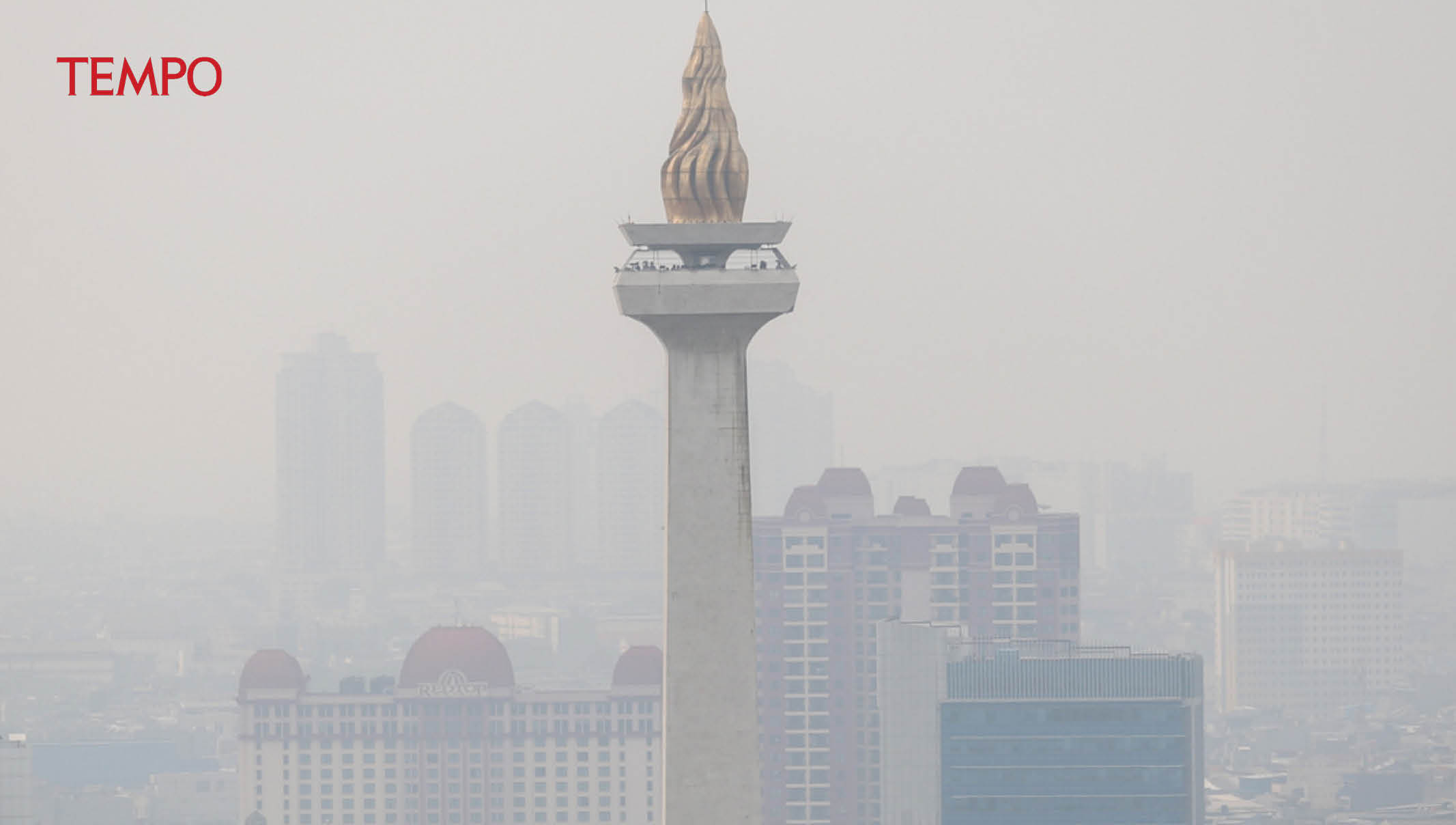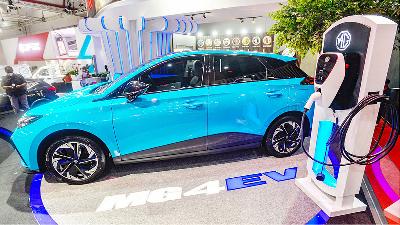How Energy Transition is the Best Solution to Beat Air Pollution
Monday, August 28, 2023
Reducing air pollution needs a persistent energy transition policy. We could learn from China and Japan.
arsip tempo : 174669013497.

NOT just this month, Jakarta and the surrounding conurbation have been smothered by filthy air. In 2007, air pollution in Jakarta was so bad that the government introduced the car free day policy. Now, 16 years later, the quality of air worsens every time Indonesia enters the El Niño dry season cycle. There are casualties. In the first six months of 2023, 640,000 people came down with acute respiratory infections, 13 times higher than the figure during the Covid-19 pandemic.
Therefore, tackling pollution requires a comprehensive, measured and persistent program. After boasting that it would tighten up tests of motor vehicle emissions—one of the causes of air pollution—the government is now obliging industry to use scrubbers, liquids to clean up pollution from industry and coal-fired power plants. But these two solutions are still temporary and partial. We need to look at how China and Japan reduced the level of pollution in Beijing and Fukuoka.
According to the United Nations Environment Program, China managed to control pollution in the state capital between 1998 and 2018 by transitioning from coal to gas. The Beijing government focused its pollution strategy on four sectors: industry, transportation, housing and its people’s lifestyles. Each of these four sectors was divided into three stages, each of a decade. The first stage was data transparency. The government installed pollutant and poison gas detectors all around the city and announced their presence on large hoardings. This was an effective way of raising city dwellers’ awareness of the need to care for the environment.
The energy transition policy obliged the industry to stop using coal as fuel. Therefore, the government provided incentives for private companies prepared to switch to gas, and to use environmentally friendly industrial technology. Once all factories had stopped using coal, the government set its sights on public transport. Gasoline-fueled buses were replaced with vehicles using electricity generated by natural gas. People purchasing electric cars were given discounts of up to 60 percent.
Once vehicles had been dealt with, the government moved on to housing by replacing coal for domestic heating with liquid gas. As a result, the amount of sulfur dioxide (SO2) produced from industrial and domestic coal burning, the cause of respiratory tract infections, fell by 97 percent after 20 years. The amount of nitrous oxide (NOx) and particulate matter (PM2.5 and PM10) from motor vehicles fell by 86 percent and 98 percent, respectively. Overall, when the UN evaluated Beijing’s air pollution control in 2018, the Chinese capital was also much fresher.
The Fukuoka strategy could also serve as an example. At the beginning of the 1990s, the air in Japan’s largest industrial city was thick with soot from factories. Women allied with professors demonstrated at the factories where their husbands worked, demanding management produce real policies to reduce pollution. They complained that their washing was always dirty and that their children were missing school because of throat infections.
The Fukuoka government listened to their protests and urged the private sector to produce a long-term strategy. Businesses were asked to switch from using fossil fuels to renewable energy and to take advantage of environmentally friendly technologies. The regional government and industry shared the costs of building clean energy infrastructure, cleaning up maritime waste that had killed marine life and providing equipment to remove ash.
Whilst, the policy to reduce Beijing’s air pollution has been called the most radical in the world, and in 1995, the UN gave Fukuoka an environmentally friendly city award. In its report, the UN wrote that the keys to successful control of air pollution in the two cities were a collaboration between the government and the private sector, openness, consistent policies and law enforcement against polluters.
The transition from fossil energy to renewable energy cannot happen overnight. It requires substantial funding and supporting technologies. Without political will, cooperation between the government and the private sector and the awareness among the people to participate, air pollution will not only continue, but will worsen.











